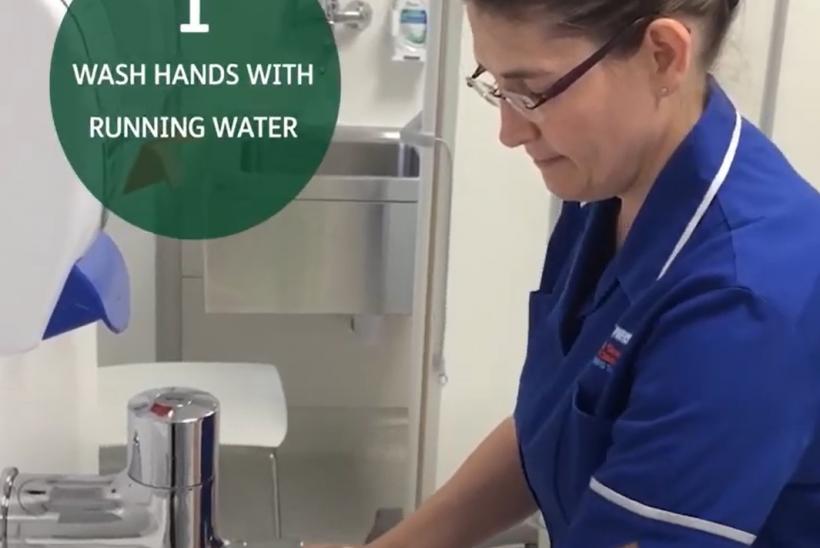Hand hygiene
“The safest thing for your child is clean hands.” Explains Helen Dunn, Lead Infection Prevention Control Nurse at Great Ormond Street Hospital (GOSH). “Children and young people can be at a high risk of getting an infection when they are ill. Handwashing or using alcohol sanitiser is the most effective way of stopping infections passing from person to person.”
Hand hygiene
What is hand hygiene?
Hand hygiene is cleaning your hands to remove dirt and bacteria bugs, microorganisms, and viruses. Having good hand hygiene prevents the spread of infections and antibiotic resistant organisms to help keep you and your family healthy.
Please watch our video on how to wash your hands properly while in hospital.
What can you do?
-
Make sure that your child cleans their hands after using the bathroom, after being outside and before a meal.
-
Make sure that you clean your hands after using the bathroom, before and after preparing a meal, before meals, after cleaning and after changing a nappy.
-
If you are at hospital make sure you clean your hands before and after visiting your child and after helping your child use the toilet or bed pan.
How you can help in hospital
-
Ask your visitors to clean their hands before and after meeting your child.
-
Make sure you and your child follow good hand hygiene.
-
If your child has been in contact with someone with an infectious disease (i.e. chickenpox or measles) let your doctor and hospital know before you arrive, as this helps prevent it spreading to other families.
-
If you or one of your visitors has been in contact with someone with an infectious disease check with your ward to see if you can still visit.
-
Do not visit or bring other visitors if any of you have any symptoms including diarrhoea and vomiting, a cough or a cold.
-
Keep your child’s cubicle tidy and clear to ensure the cleaners can clean the area properly.
Our staff have all been trained in hand hygiene and we expect all staff to wash or gel their hands before and after contact with a child or young person. If you have any questions, we encourage you to ask your nurse!


